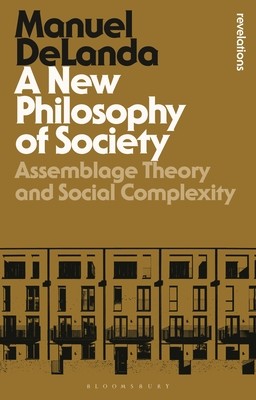
- We will send in 10–14 business days.
- Author: Manuel DeLanda
- Publisher: Bloomsbury Academic
- ISBN-10: 1350096733
- ISBN-13: 9781350096738
- Format: 13.7 x 21.3 x 1.3 cm, minkšti viršeliai
- Language: English
- SAVE -10% with code: EXTRA
Reviews
Description
In A New Philosophy of Society Manuel DeLanda offers a fascinating look at how the contemporary world is characterized by an extraordinary social complexity. Since most social entities, from small communities to
large nation-states would disappear altogether if our cognitive abilities ceased to exist, DeLanda proposes a
novel approach to social ontology that asserts the autonomy of social entities from the conceptions we have of them.
EXTRA 10 % discount with code: EXTRA
The promotion ends in 23d.11:22:11
The discount code is valid when purchasing from 10 €. Discounts do not stack.
- Author: Manuel DeLanda
- Publisher: Bloomsbury Academic
- ISBN-10: 1350096733
- ISBN-13: 9781350096738
- Format: 13.7 x 21.3 x 1.3 cm, minkšti viršeliai
- Language: English English
In A New Philosophy of Society Manuel DeLanda offers a fascinating look at how the contemporary world is characterized by an extraordinary social complexity. Since most social entities, from small communities to
large nation-states would disappear altogether if our cognitive abilities ceased to exist, DeLanda proposes a
novel approach to social ontology that asserts the autonomy of social entities from the conceptions we have of them.


Reviews